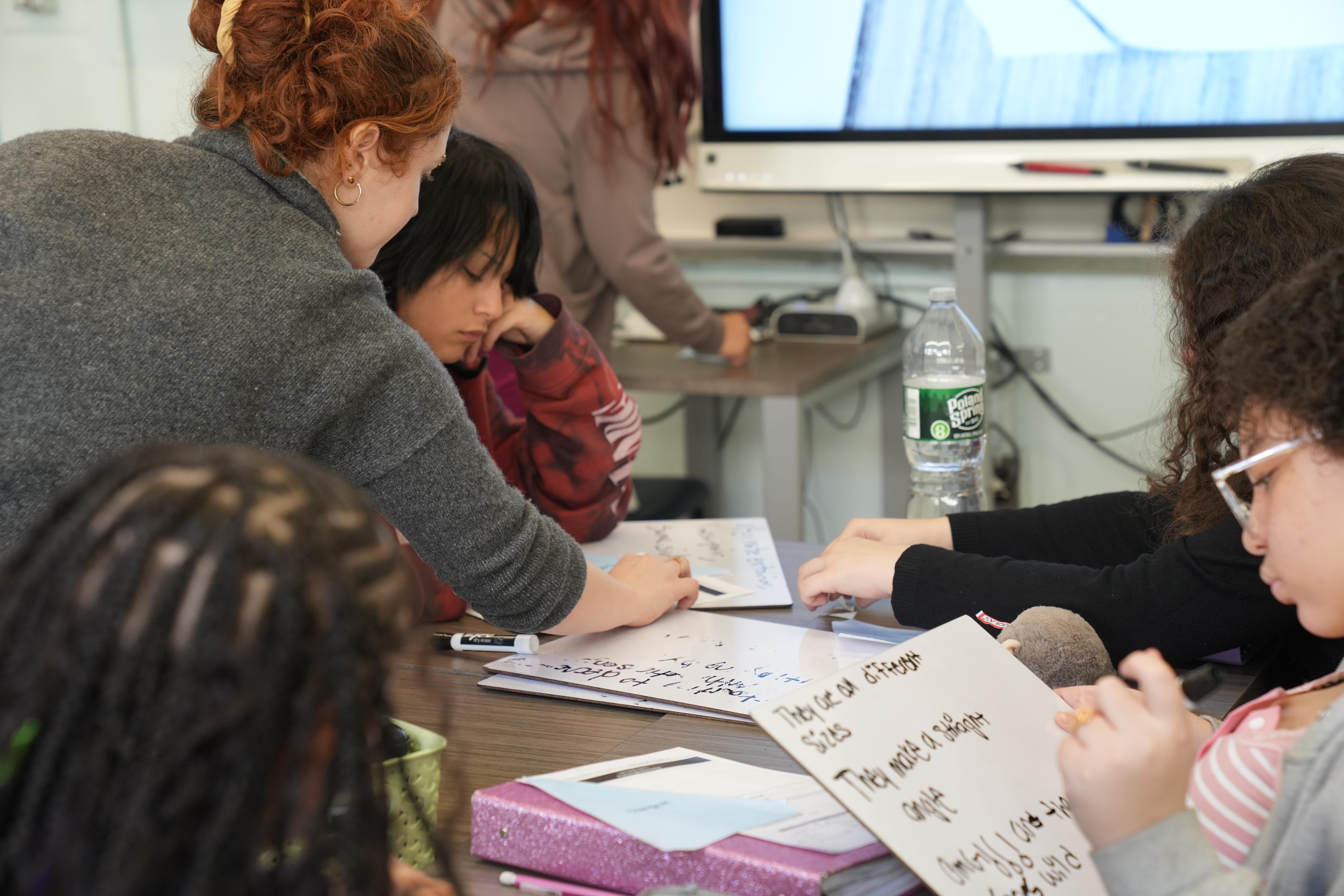Math
Departmental Mission
The Mathematics Department at Fordham HS for the Arts prepares students for the Algebra I, Algebra II, and Geometry Regents, along with preparing students for College Algebra through exposure to Pre-Calculus and AP Calculus. The math classrooms at FHSA utilized a Flipped Classroom model to emphasize the importance of student collaboration, intellectual risk-taking, and accountability. Depending on student performance and exposure to Algebra I in middle school, some students may begin their math education at FHSA by taking Algebra II in their freshman year. The goal for mathematics teachers at FHSA is to support student learning and provide appropriate support to ensure students’ success in post-secondary math classes along with developing opportunities to apply their math skills to real-world problems through the use of authentic tasks.
Algebra I: Algebra I will provide students with an extensive and comprehensive treatment of CCLS Algebra 1. This course concludes with a Regents exam which all students will take in June. This course provides students with a rigorous academic core by extending what students have learned in the elementary and middle school level as well as introducing more advanced topics. These advanced topics include understanding our number system, solving, graphing, and writing linear equations and inequalities, linear systems, polynomials, factoring, linear and exponential functions, piecewise functions, quadratic functions, applications of functions, and data analysis using both one variable and bivariate statistics. Each student at the conclusion of the course will gain a deeper foundation of Algebra I as well as research skills in mathematics, presentation skills, and real world applications and problem-solving of course material to prepare them for Algebra II, Geometry, Pre-calculus, and beyond.
Algebra II: In Algebra II, students develop an in-depth understanding of seven graph families and draw relationships among them. The course extends the properties of polynomials, exponential functions, and sequences begun in Algebra I, and begins the study of logarithms, rationals, radicals, and trigonometric functions. We believe that reinforcing these concepts through application, technology, and the arts creates an accessible class environment and an appreciation for the importance of the nonlinear graph families studied in the course.
Geometry: In Geometry, students will have the opportunity to make conjectures about geometric situations and prove in a variety of ways that their conclusion follow logically from their hypothesis. Integrating synthetic, transformational, and coordinate approaches to geometry, students will justify geometric relationships and properties of geometric figures. Congruence and similarity of triangles will be established using appropriate theorems. Transformations including rotations, reflections, translations, glide reflections, and coordinate geometry will be used to establish and verify geometric relationships. A major emphasis of this course is to allow students to investigate geometric situations. Properties of triangles, quadrilaterals, and circles should receive particular attention. Geometry is meant to lead students to an understanding that reasoning and proof are fundamental aspects of mathematics.
Pre-Calculus: Pre-Calculus is designed to preparre students for Calculus, either for high school or college. Topics include understanding functions from symbolc, tabular, and graphical perspectives, transformations and function composition, polynomial functions, rational functions, trigonometry, and conic sections. In addition to content mastery, the course goals are to further develop students' problem-solving and critical thinking skills. Pre-Calculus is a fast-paced course, and the level of difficulty increases significantly throughout the year. The goal for all students is to be college-ready in mathematics and for all students to enter Calculus I or AP Calculus AB in the following school year.

